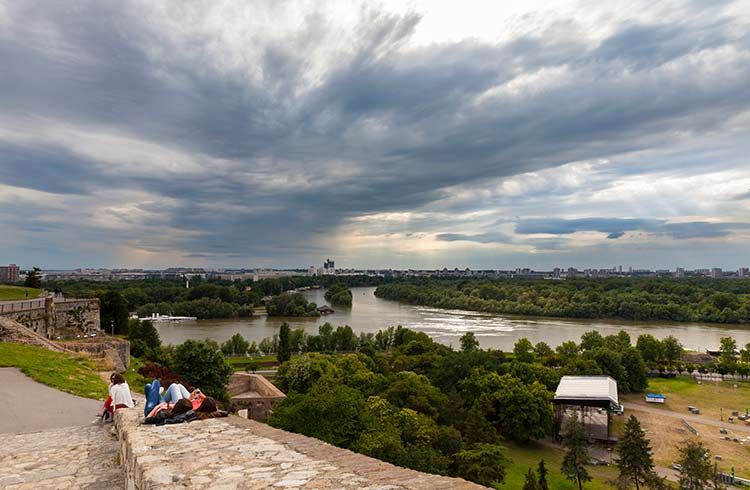How to Stay Healthy in Serbia: Essential Travel Safety Tips
Serbia is an easy place to stay healthy, but there are a few things you should know about wildlife and weather.
 Photo © Getty Images/Westend61
Photo © Getty Images/Westend61
Serbia is not too bad when it comes to staying healthy, like any country it has its share of health issues. There are a few little things you need to be careful of, but all-in-all you shouldn't have too much trouble. So let's take a look at what you need to watch out for.
The Kosava
When traveling through Serbia and especially the capital, Belgrade, you maybe hear locals refer to the Kosava. Basically it's a notorious Belgrade wind, which sweeps through the area bringing a burst of cold that will chill you to your bones.
It starts in the Carpathian Mountains and follows the Danube northwest where it gains a jet effect, then continues to Belgrade. It can spread as far north as Hungary.
In the winter, it can cause temperatures to drop to around -30C. In the summer, it is cool and dusty. But the danger of this wind - it can give you a cold more quickly than you expect, especially in winter.
The best advice would be to dress appropriately and don't spend too much time out in the wind. You'll definitely feel the pinch.
Wildlife and stray dogs
Serbia has a particularly high number of animals roaming its countryside and streets. Many of these are strays.
And while they may look friendly, always be careful about unknown animals. Rabies can be found with stray dogs and you can definitely give yourself an unpleasant experience if you end up with a dose while on your trip overseas. The positive is that the risk of contracting it has reduced thanks to an EU supported program to help eradicate the disease. The number of rabies cases fell as much as 80% in 2011, with only 13 cases of the disease present in 2012.
Vaccinations for Serbia
There are no specific vaccinations required for Serbia, however it is always a great idea to get a Hepatitis A shot and make sure your routine vaccinations e.g measles are up to date.
Is the water safe to drink in Serbia?
If you decide to go to this region, boil (or better still, purify) your drinking water or used bottled water only. Taking the right food and water hygiene precautions can often save you a few days in hospital.
Medical treatment in Serbia
So you've got yourself sick and you need to go to hospital. Many doctors and other health care providers in Serbia are highly trained with ambulance services, hospitals and equipment having improved considerably. Serbia also has reciprocal agreements with other EU nations for emergency health care.
For less serious illnesses and injuries, chemists can sort you out with advice and over the counter medications. However, it is recommended to take what medications you may need from home along with a doctor's letter as sometimes there are medication shortages in Serbia.
Simple and flexible travel insurance
You can buy at home or while traveling, and claim online from anywhere in the world. With 150+ adventure activities covered and 24/7 emergency assistance.
Get a quote
No Comments